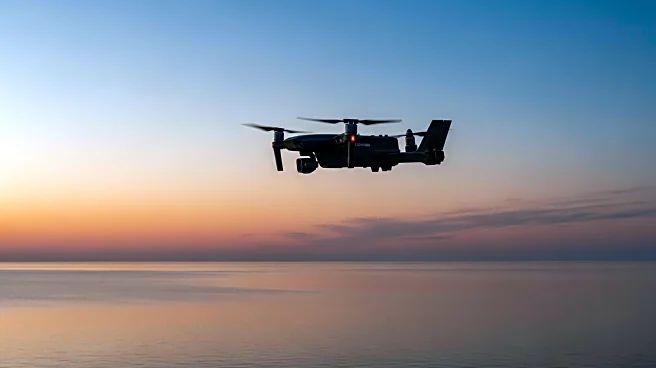What is the story about?
What's Happening?
Sweden is set to enhance its maritime security in the Baltic Sea by expanding the surveillance capabilities of its coast guard. This legislative proposal comes in response to increased regional tensions, marked by undersea cable and gas pipeline outages following Russia's 2022 invasion of Ukraine, as well as recent drone sightings and airspace violations. Sweden's Minister for Civil Defence, Carl-Oskar Bohlin, emphasized the necessity of adapting to the current external situation. In parallel, NATO has announced an upgrade to its mission in the Baltic Sea, deploying an air-defence frigate and other assets to counteract drone incursions in Denmark.
Why It's Important?
The move to bolster maritime surveillance in the Baltic Sea is significant due to the strategic importance of the region, which has been a focal point of geopolitical tensions. The enhanced surveillance capabilities are expected to improve Sweden's ability to monitor and respond to potential threats, thereby contributing to regional stability. This development also underscores the broader security concerns in Europe, particularly in light of Russia's aggressive actions. The involvement of NATO highlights the alliance's commitment to safeguarding its member states and maintaining security in the Baltic region. The increased military presence could deter further provocations and reassure neighboring countries of their security.
What's Next?
As Sweden implements these legislative changes, it is likely that there will be increased cooperation with NATO and other Baltic Sea nations to ensure comprehensive maritime security. The expanded surveillance capabilities may lead to more frequent joint exercises and intelligence sharing among allies. Additionally, the international community will be closely monitoring Russia's response to these developments, as any escalation could further strain relations. The situation may also prompt other countries in the region to enhance their own security measures, potentially leading to a broader militarization of the Baltic Sea.















